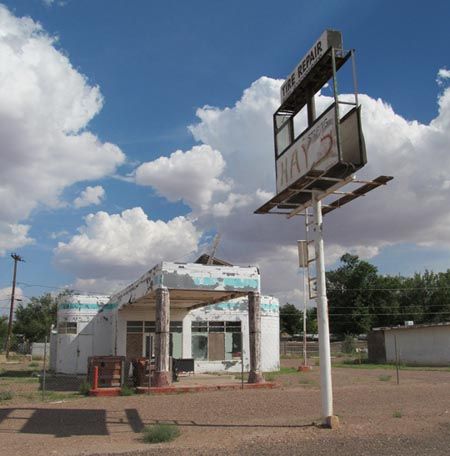Booman recently posted an article titled ‘High Confidence’ Won’t Cut It. In it, he quoted the U.S. Government Assessment of the Syrian Government’s Use of Chemical Weapons delivered on August 21 as saying:
Our high confidence assessment is the strongest position that the U.S. Intelligence Community can take short of confirmation.
Oh. “I see,” said the blind man to his deaf wife.
Oh.
We are now thoroughly down Alice’s rabbit hole.
Nothing new, apparently.
White House threw secret ‘Alice in Wonderland’ bash during recession.
It was the tea party the Obamas just couldn’t resist.
A White House “Alice in Wonderland” costume ball — put on by Johnny Depp and Hollywood director Tim Burton — proved to be a Mad-as-a-Hatter idea that was never made public for fear of a political backlash during hard economic times, according to a new tell-all.
“The Obamas,” by New York Times correspondent Jodi Kantor, tells of the first Halloween party the first couple feted at the White House in 2009. It was so over the top that “Star Wars” creator George Lucas sent the original Chewbacca to mingle with invited guests.
Nice.

Really nice.
Read on for more.
Much more.
Our high confidence assessment is the strongest position that the U.S. Intelligence Community can take short of confirmation.
This sentence reeks of the carefully modulated dishonesty expressed by so many high-ranking PermaGov hustlers of the past decade or so.
Two come to mind immediately. On 3/12/13, the following colloquy occurred during a hearing on illegal NSA surveillance by the Senate Intelligence Committee. Director of National Intelligence James Clapper was the witness.
SEN. RON WYDEN (D-Ore.): “This is for you, Director Clapper, again on the surveillance front. And I hope we can do this in just a yes or no answer because I know Senator Feinstein wants to move on. Last summer, the NSA director was at a conference, and he was asked a question about the NSA surveillance of Americans. He replied, and I quote here, `The story that we have millions or hundreds of millions of dossiers on people is completely false.’
“The reason I’m asking the question is, having served on the committee now for a dozen years, I don’t really know what a dossier is in this context. So what I wanted to see is if you could give me a yes or no answer to the question, does the NSA collect any type of data at all on millions or hundreds of millions of Americans?”
Director of National Intelligence JAMES CLAPPER: “No, sir.”
SEN. WYDEN: “It does not?”
DIR. CLAPPER: “Not wittingly. There are cases where they could inadvertently perhaps collect, but not wittingly.”
SEN. WYDEN: “Thank you. I’ll have additional questions to give you in writing on that point, but I thank you for the answer.”
Later on, after his cover was successfully broken by the ongoing fuss over the whole Snowden affair, Clapper said on the air to Andrea Mitchell:
I responded in what I thought was the most truthful, or least untruthful manner, by saying no.”
And from the boss of all truth-sliders, the inimitable Donald Rumsfeld:
From a Press Conference at NATO Headquarters, Brussels, Belgium, June 6, 2002
Now what is the message there? The message is that there are no “knowns.” There are things we know that we know. There are known unknowns. That is to say there are things that we now know we don’t know. But there are also unknown unknowns. There are things we do not know we don’t know. So when we do the best we can and we pull all this information together, and we then say well that’s basically what we see as the situation, that is really only the known knowns and the known unknowns. And each year, we discover a few more of those unknown unknowns.
It sounds like a riddle. It isn’t a riddle. It is a very serious, important matter.
There’s another way to phrase that and that is that the absence of evidence is not evidence of absence. It is basically saying the same thing in a different way. Simply because you do not have evidence that something exists does not mean that you have evidence that it doesn’t exist. And yet almost always, when we make our threat assessments, when we look at the world, we end up basing it on the first two pieces of that puzzle, rather than all three.
And there it is:
The earlier, known/unknowns claptrap got all the attention but the real truthiness nugget was “…the absence of evidence is not evidence of absence.”
He may as well have stated “The absence of proof of guilt is not proof of innocence.”
“Innocent until proven guilty?” Not a trace left of that idea. In fact, even worse is the distance that we have traveled from its opposite. Even “Guilty until proven innocent” no longer applies. Now? Now it’s “The absence of evidence is not evidence of [its] absence” and its necessary corollary, “The presence of evidence is no thus no longer proof of its existence.”
People are clamoring for “proof” of Assad’s forces’ guilt in this chemical attack, but they are asking a government that has clearly stated its intent to respond to any and all questions in the “most truthful/least untruthful” manner possible.
“The absence of proof of guilt is proof of innocence?”
It used to be, but not anymore I guess.
“Guilt or innocence by decree” is what we now have.
Scared yet?
You ought to be.
We are in Queen of Hearts Land, now.
The players all played at once without waiting for turns, quarrelling all the while, and fighting for the hedgehogs; and in a very short time the Queen was in a furious passion, and went stamping about, and shouting `Off with his head!’ or `Off with her head!’ about once in a minute.
Alice began to feel very uneasy: to be sure, she had not as yet had any dispute with the Queen, but she knew that it might happen any minute, `and then,’ thought she, `what would become of me? They’re dreadfully fond of beheading people here; the great wonder is, that there’s any one left alive!’
She was looking about for some way of escape, and wondering whether she could get away without being seen, when she noticed a curious appearance in the air: it puzzled her very much at first, but, after watching it a minute or two, she made it out to be a grin, and she said to herself `It’s the Cheshire Cat: now I shall have somebody to talk to.’
`How are you getting on?’ said the Cat, as soon as there was mouth enough for it to speak with.
Alice waited till the eyes appeared, and then nodded. `It’s no use speaking to it,’ she thought, `till its ears have come, or at least one of them.’ In another minute the whole head appeared, and then Alice put down her flamingo, and began an account of the game, feeling very glad she had someone to listen to her. The Cat seemed to think that there was enough of it now in sight, and no more of it appeared.
`I don’t think they play at all fairly,’ Alice began, in rather a complaining tone,’ and they all quarrel so dreadfully one can’t hear oneself speak–and they don’t seem to have any rules in particular; at least, if there are, nobody attends to them–and you’ve no idea how confusing it is all the things being alive; for instance, there’s the arch I’ve got to go through next walking about at the other end of the ground–and I should have croqueted the Queen’s hedgehog just now, only it ran away when it saw mine coming?’
`How do you like the Queen?’ said the Cat in a low voice.
`Not at all,’ said Alice: `she’s so extremely–‘ Just then she noticed that the Queen was close behind her, listening: so she went on, `–likely to win, that it’s hardly worth while finishing the game.’
The Queen smiled and passed on.
`Who ARE you talking to?’ said the King, going up to Alice, and looking at the Cat’s head with great curiosity.
`It’s a friend of mine–a Cheshire Cat,’ said Alice: `allow me to introduce it.’
`I don’t like the look of it at all,’ said the King: `however, it may kiss my hand if it likes.’
`I’d rather not,’ the Cat remarked.
`Don’t be impertinent,’ said the King, `and don’t look at me like that!’ He got behind Alice as he spoke.
`A cat may look at a king,’ said Alice. `I’ve read that in some book, but I don’t remember where.’
`Well, it must be removed,’ said the King very decidedly, and he called the Queen, who was passing at the moment, `My dear! I wish you would have this cat removed!’
The Queen had only one way of settling all difficulties, great or small. `Off with his head!’ she said, without even looking round.
`I’ll fetch the executioner myself,’ said the King eagerly, and he hurried off.
Alice thought she might as well go back, and see how the game was going on, as she heard the Queen’s voice in the distance, screaming with passion. She had already heard her sentence three of the players to be executed for having missed their turns, and she did not like the look of things at all, as the game was in such confusion that she never knew whether it was her turn or not. So she went in search of her hedgehog.
The hedgehog was engaged in a fight with another hedgehog, which seemed to Alice an excellent opportunity for croqueting one of them with the other: the only difficulty was, that her flamingo was gone across to the other side of the garden, where Alice could see it trying in a helpless sort of way to fly up into a tree.
By the time she had caught the flamingo and brought it back, the fight was over, and both the hedgehogs were out of sight: `but it doesn’t matter much,’ thought Alice, `as all the arches are gone from the side of the ground.’ So she tucked it away under her arm, that it might not escape again, and went back for a little more conversation with her friend.
When she got back to the Cheshire Cat, she was surprised to find quite a large crowd collected round it: there was a dispute going on between the executioner, the King, and the Queen, who were all talking at once, while all the rest were quite silent, and looked very uncomfortable.
The moment Alice appeared, she was appealed to by all three to settle the question, and they repeated their arguments to her, though, as they all spoke at once, she found it very hard indeed to make out exactly what they said.
The executioner’s argument was, that you couldn’t cut off a head unless there was a body to cut it off from: that he had never had to do such a thing before, and he wasn’t going to begin at HIS time of life.
The King’s argument was, that anything that had a head could be beheaded, and that you weren’t to talk nonsense.
The Queen’s argument was, that if something wasn’t done about it in less than no time she’d have everybody executed, all round. (It was this last remark that had made the whole party look so grave and anxious.)
Alice could think of nothing else to say but `It belongs to the Duchess: you’d better ask HER about it.’
`She’s in prison,’ the Queen said to the executioner: `fetch her here.’ And the executioner went off like an arrow.
The Cat’s head began fading away the moment he was gone, and, by the time he had disappeared; so the King and the executioner ran wildly up and down looking for it, while the rest of the party went back to the game.
And here we are.

Nice.
WTFU.
Here comes Hillary.
Alice all growed up!!!
Watch.
AG





